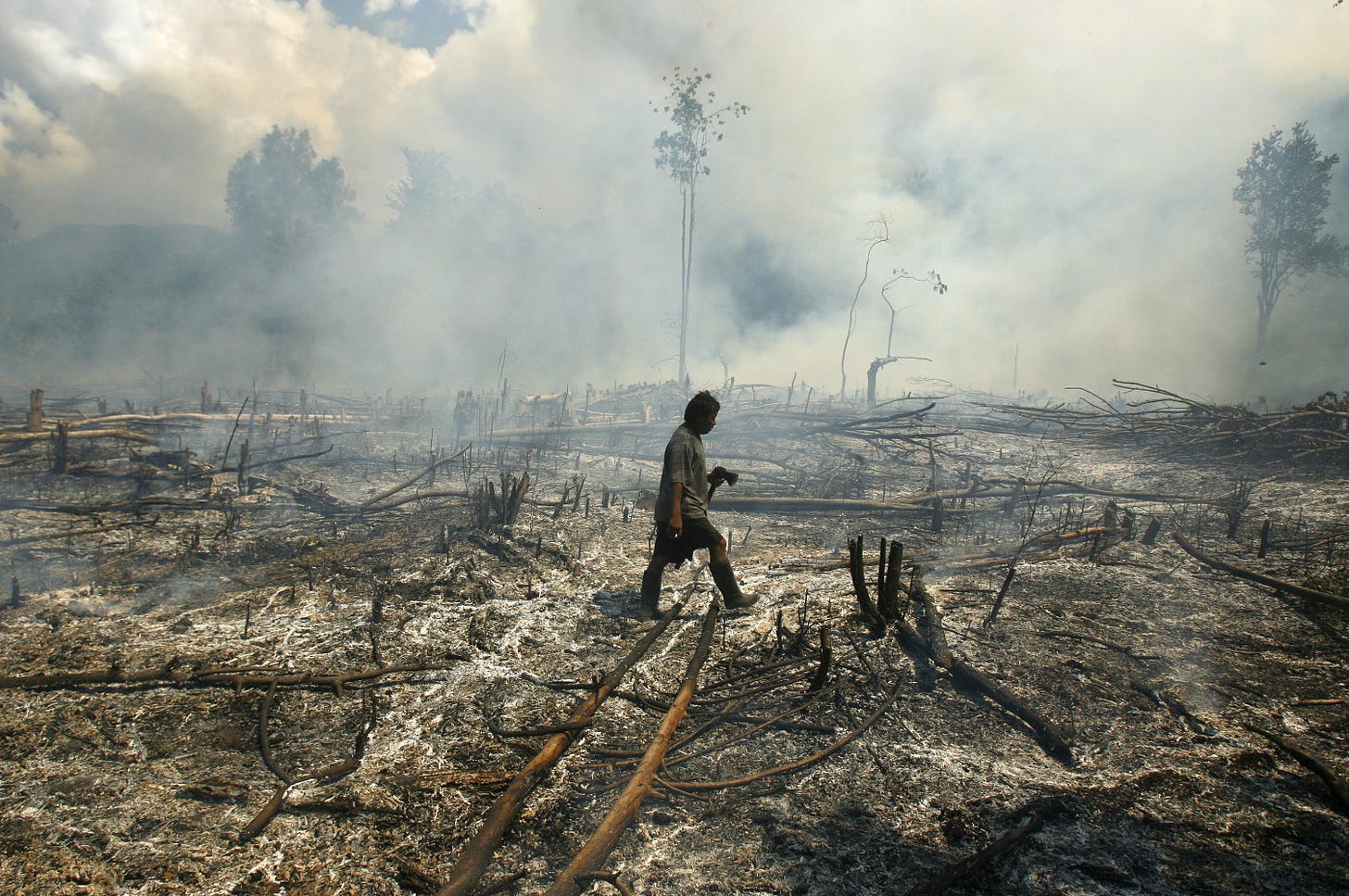🥗Every Little Helps: Tesco’s “tinder” for surplus stock and a sustainable turn for Norway’s sovereign wealth fund
As the weather gets particularly chilly, take an extra couple of minutes under the duvet and catch up with some climate news.
Happy Monday 👋
This week, George summarises the UK’s latest decision to open a coal mine; Tesco fights back on food waste; Norway’s sovereign wealth fund pushes for better ESG; and we are reminded (yet again) how important indigenous people are for safeguarding nature.
👀 Articles to read
🏭UK opens new coal mine, yes, seriously. Just a year after leading COP26 and agreeing to phase out coal, the UK has approved their first coal mine in decades.
George’s two key takeaways:
The government claim that the coal will be used for the steel industry, however, it’s suggested that 85% of the coal will be exported and much of the coal can’t be used in the steel-making process.
What’s almost comical? The coal mine is said to be carbon neutral but that’s only to dig the coal out of the ground, it’s no longer carbon neutral when it’s burnt. You couldn’t make it up.
🚜 Tesco create a ‘tinder for surplus stock’. This is a huge move from Tesco to create a marketplace for surplus products, helping unlock new revenue for items that would otherwise be wasted. Good for business and for the planet!
🧠 Why it matters. Finding buyers for what would otherwise be wasted materials is not easy. Yes, companies like OLIO or Too Good To Go have made it easy at a consumer level, but that’s a drop in the ocean for food waste. It’s difficult for companies to find buyers at scale and often for one-off purchases. Not only that, sourcing materials bring with it a number of challenges. Finding large enough and consistent supplies can make it hard for companies to plan for the future, what happens if the surplus disappears and the producer orders less next month, there may not be a surplus. Tesco’s exchange can help solve a lot of the marketplace issues that companies face on a huge scale.

🌲Indigenous practices could prevent wildfires today. One thing that we’ve learnt throughout our years of being interested in the climate is that we should probably look back to Indigenous groups for how to care for the land and make decisions with sustainability at their core. Researchers found that restoring and adapting Indigenous burning practices could influence certain climate conditions, reducing the risk of wildfires across the Southwest US.

💰Norwegian sovereign wealth fund goes hard on pro-ESG companies. Nicolai Tangen, the CEO of the $1.3tn fund that owns roughly 1.5% of every listed company in the world has said that the fund will become more emphatic on ESG (Environmental, social and corporate governance), looking towards a 30-100 year timeline, not short term. While this is a major move that will make companies pay attention, it’s important to note that the capital for the fund comes from Norwegian oil and gas.
📕 How companies can use the power of purchases to make a climate difference. As a business, it can feel challenging to know how to reduce the emissions from your purchases, this piece from Becky Clissman of The Chancery Lane Project, gives a great starting point. One, use the pound of your spending - ask questions and ensure your suppliers align with your goals. Two, set a carbon budget, work out how many emissions you can produce between now and your net zero goal and assign those emissions across your team.
You should also check out TCLP for all the great work they do on helping embed climate action into contracts!
That’s all for this week folks. Look out for our final post of 2022 next week, which promises to be festive! In the meantime, if anything above resonated with you, be sure to smack that share button or leave a comment!
The Grumpy Optimists 💚


